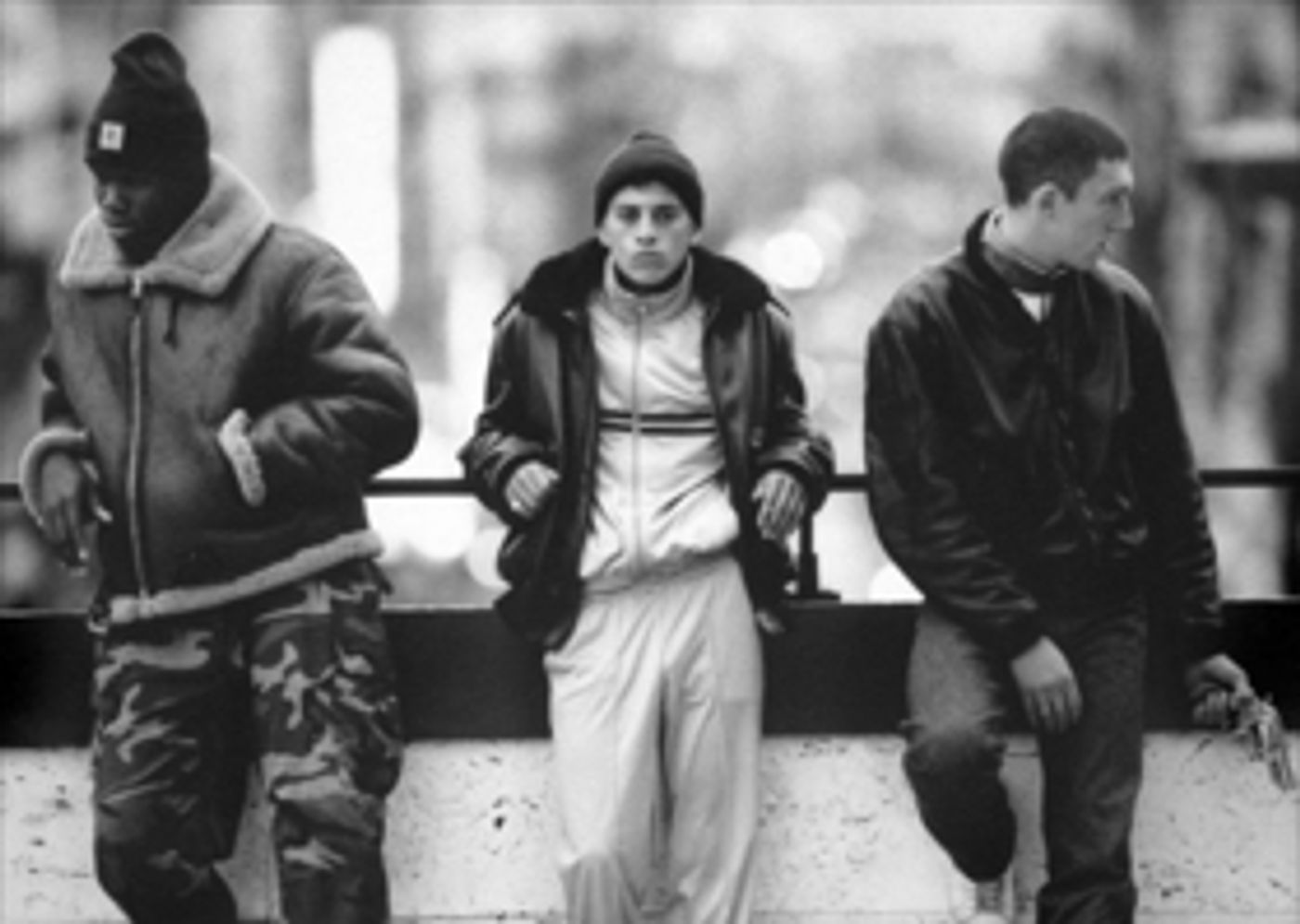BAM and Triple Canopy Present ON RESENTMENT

From Wednesday, March 20 through Thursday, March 28, BAM teams up with online magazine Triple Canopy to present BAM and Triple Canopy: On Resentment, a wide-ranging series of daring works that explore cinema as a potent vehicle for expressing and exploring resentment. While recent discourse has frequently centered on feelings of marginalization among working class white men, On Resentment examines resentment as it intersects with issues of class, race, gender, sexuality, and land. A component of Triple Canopy's current issue-which asks pressing questions about the role resentment plays in society and art, and who is afforded the right to resentment-the film series highlights the specific potency of cinema as a vehicle for oppressed voices to air grievances, bring attention to injustice, and effect change.
The series opens with La Haine (1995), Mathieu Kassovitz's explosive, bravura portrait of young men on the margins-one black, one Jewish, one Arab-in the Parisian banlieues, in which rage at an act of police brutality threatens to erupt into violence. Artist and author Maryam Monalisa Gharavi, Triple Canopy senior editor Emily Wang, and series programmer Ashley Clark (BAM) will appear for a post-screening discussion.
While the films included span decades, a number of works spring from the revolutionary political cinema of the 1960s, such as Stanley Kubrick's savage satire of Cold War paranoia Dr. Strangelove or: How I Learned to Stop Worrying and Love the Bomb (1964); Lindsay Anderson's incendiary anti-authoritarian allegory If... (1968); legendary cinematographer Haskell Wexler's debut feature, the groundbreaking narrative-cum-documentary of the 1968 Democratic National Convention Medium Cool (1969); and Michelangelo Antonioni's sole American film, the radically anti-capitalist counterculture portrait Zabriskie Point (1970).
Many works examine the fraught relationship between marginalized communities and majority culture, including Who Killed Vincent Chin? (Choy and Tajima-Peña, 1987), an Academy Award-nominated documentary on the racist murder of a Chinese-American engineer; Handsworth Songs (Akomfrah, 1987), a FreeForm documentary produced and written by the trailblazing Black Audio Film Collective on the 1985 Handsworth riots that rocked Birmingham, introduced by series programmer Ashley Clark; and Bamboozled (2000), Spike Lee's ferocious satire of minstrelsy and the media's role in perpetuating African-American stereotypes.
A common theme that occurs throughout the series is resistance to and the deleterious effects of state repression and violence, as in Zama (2017), Lucrecia Martel's hallucinatory vision of 18th century colonialism; the courageous, surreptitiously filmed documentary of bureaucratic corruption in Beijing Petition (Zhao, 2009); Asghar Farhadi's Oscar-winning A Separation (2011), an examination of religious, gender, and economic tensions in a theocratic state; the Filipino masterpiece of social realism and righteous rage Manila in the CLAWS of Light (Brocka, 1975), introduced by Princeton Postdoctoral Research Associate Paul Nadal; and Hunger (2008), Steve McQueen's unflinchingly visceral account of Irish Republican Army member Bobby Sands' grueling prison hunger strike.
Special events include a screening of the British Afrofuturist dystopian drama, Welcome II the Terrordome (1995)-directed by Ngozi Onwurah, the first black woman to direct a film released in the UK-introduced by Triple Canopy contributor Derica Shields and screening with the satirical short an entirely sincere, comprehensive and essential step by step guide to creating a film: the black london edition (Emeke, 2018); An Evening with Sky Hopinka, a program of the groundbreaking Native American artist's self-described "ethnopoetic" films, with a post-screening discussion with Hopinka; and a screening of taboo-breaking artist Leigh Ledare's uncomfortable, riveting social experiment The Task (2018), followed by a post-screening discussion with the artist.
Photo Credit: Mathieu Kassovitz's La Haine (1995)
Videos

